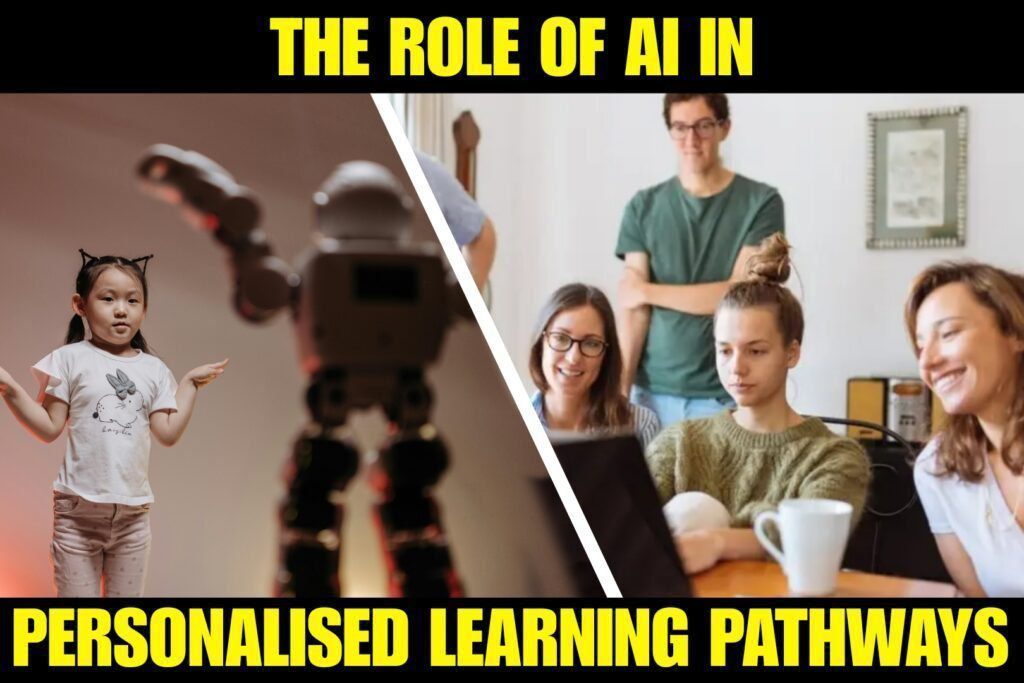In 2025, the concept of a college major as a rigid, lifelong career label is dying. Replacing it is the modular degree—a flexible, stackable, skills-driven alternative that allows students to design their own interdisciplinary paths based on evolving interests, job market demands, and real-world problems.
Forget choosing between “Computer Science” or “Marketing.” Today’s learners can stack micro-credentials in data science, behavioral economics, UI/UX design, and digital ethics—crafting a custom degree that’s more aligned with who they are and what the world needs. Employers are starting to favor this model too, valuing demonstrated skill over fixed diplomas.
As education unbundles, modular degrees are emerging as the new norm, especially in online, hybrid, and tech-forward universities. The traditional four-year, one-major degree is no longer enough for a generation raised on rapid change, side hustles, and multiple career pivots.
This article explores the rise of modular degrees, how they work, what institutions are offering them, their impact on careers and learning, and what it means for the future of higher education.
What Is a Modular Degree?
A modular degree is a flexible academic pathway composed of individual, stackable modules—each representing a course, skill, or specialization. Instead of one long, linear curriculum locked to a single major, students choose and combine:
- Skill-based micro-credentials (e.g., “Data Analytics with Python”)
- Thematic blocks (e.g., “Ethics in AI,” “Green Business Models”)
- Cross-disciplinary minors or nano-degrees
- Industry-certifications and project-based modules
These modules may come from one university, a partner network, or external platforms like Coursera, edX, or even corporate learning hubs.
In the end, students earn a custom degree that is recognized by both academia and employers—and much more adaptable than a traditional one-major program.
Why Modular Degrees Are Rising in 2025
1. The Skill Economy Demands It
Employers are hiring for specific capabilities, not majors. A marketing job today may require SEO, Python automation, data analytics, and storytelling. Traditional majors can’t keep up with this convergence.
2. Careers Are Nonlinear
Gen Z and Millennials expect to change careers 5–7 times. Modular learning supports this flexibility by allowing learners to reskill or pivot quickly.
3. Online Education Has Matured
With platforms like Coursera, edX, and FutureLearn offering verified micro-credentials from top universities, learners no longer rely solely on one institution.
4. Universities Are Under Pressure
Declining enrollments, student debt crises, and relevance gaps are pushing colleges to rethink how they package knowledge.
5. Global Collaboration
Modular degrees make it easier for students to earn cross-border education. A student may combine:
- Machine learning modules from MIT (via edX)
- Innovation design from Royal College of Art
- Global politics from a European university
How a Modular Degree Works (Student Journey)
Meet Aisha, Age 21, Modular Degree Learner (2025)
Aisha wants to work in sustainability and data-driven policymaking. She skips the typical “Environmental Science” degree and instead builds:
- Core Modules
- “Foundations of Data Science” (Coursera – University of Michigan)
- “Climate Change and Global Inequality” (edX – University of Oslo)
- Skill Blocks
- “Geospatial Mapping with QGIS” (FutureLearn)
- “Policy Design for Climate Action” (Harvard Online)
- Applied Labs
- Participated in a UN-sponsored hackathon (credited project-based module)
- Internship with a climate NGO, credited as a 6-week module
- Capstone
- Creates a real policy proposal using AI to analyze climate migration data
She receives a modular degree in “AI for Climate Policy”—recognized by top green think tanks.
Who’s Offering Modular Degrees in 2025?
🎓 Academic Institutions
- Arizona State University: Global Freshman Academy lets students stack credits across disciplines before deciding a path.
- Minerva University: Fully modular, problem-based learning across disciplines and countries.
- Open University UK: “Design Your Degree” system lets students mix modules across 80+ subjects.
- Georgia Tech: Allows stacking edX nano-degrees toward a full Master’s.
- University of Helsinki: Modular AI and Ethics degrees via online + hybrid formats.
🧠 Tech-Led Platforms
- Coursera Degrees: Offers stackable degree paths with certificates integrated from multiple universities.
- edX MicroMasters: Complete mini-master’s in areas like business, machine learning, or edtech, then stack toward full degrees.
- Google Career Certificates: Some colleges now offer credit toward modular degrees based on Google-issued certificates.
- LinkedIn Learning Paths: Beginning to partner with colleges for elective credit integration.
Benefits for Students
✅ Customization: Students tailor their learning to passions and career goals.
✅ Agility: Update skillsets quickly as industries evolve.
✅ Cost Efficiency: Pay-as-you-go learning, fewer irrelevant credits.
✅ Global Access: Take modules from global institutions, not just local campuses.
✅ Portfolio-Driven: Most modules include applied projects, better preparing students for real jobs.
What Employers Say
“A candidate with Python + policy design + global health? That’s exactly the hybrid we want.” – Head of Data, WHO
“We don’t care if you majored in marketing. Can you run Facebook Ads, A/B test creatives, and write copy? That’s what modular degrees prove.” – CMO, DTC Startup
“The best hires today aren’t from a single major—they’re interdisciplinary problem-solvers. Modular programs breed those thinkers.” – Talent Partner, Google
Employers increasingly trust platforms and project portfolios as proof of competency—often more than GPA or one-size-fits-all diplomas.
Limitations and Challenges
Despite the momentum, modular degrees aren’t without friction.
- Lack of Universal Recognition
Some employers and institutions still prioritize traditional degrees over unaccredited stacks. - Advisory Complexity
Students may struggle to navigate course paths without expert curriculum guidance. - Fragmentation Risk
Mixing too many modules without a coherent narrative can hurt credibility. - Credential Inflation
Too many micro-degrees can devalue individual certifications unless quality control is enforced.
To counter these, many modular programs now require:
- Capstone Projects
- Peer-reviewed portfolios
- Modular advisors or AI-guided curriculum builders
Modular Degrees vs. Traditional Majors (At a Glance)
| Feature | Traditional Degree | Modular Degree |
|---|---|---|
| Structure | Fixed Curriculum | Flexible, Self-Directed |
| Time | 3–4 years | 1–4 years (varies) |
| Cost | High | Pay-per-module |
| Output | One major title | Custom skill stack |
| Recognition | Broad | Growing (platform + project-based) |
| Best For | Theory, academia | Jobs, startups, freelancing |
What’s Next: The Future of Higher Ed
By 2030, modular education will dominate online learning and hybrid campuses. Expected trends include:
- AI-Generated Degree Paths based on personal goals, strengths, and job market data
- Universal Learning Wallets storing blockchain-based credentials
- Cross-university module networks where students take credits from 10+ institutions
- Subscription-based education with monthly fees and unlimited course access
- B2B Modular Degrees: Companies designing degrees with universities to train future hires
Major players like Google, Amazon, and IBM may even issue their own modular degrees, replacing traditional hiring pipelines.
Final Takeaway
The rise of modular degrees marks a seismic shift in how we define education, careers, and identity. It’s not about what major you picked at 18. It’s about the unique path you carve, the problems you solve, and the skills you master along the way.
In a world that rewards adaptability, creativity, and lifelong learning, modular degrees empower students to stay relevant—not just once, but always.
Because in the age of AI, one major should never define your future. You should.


